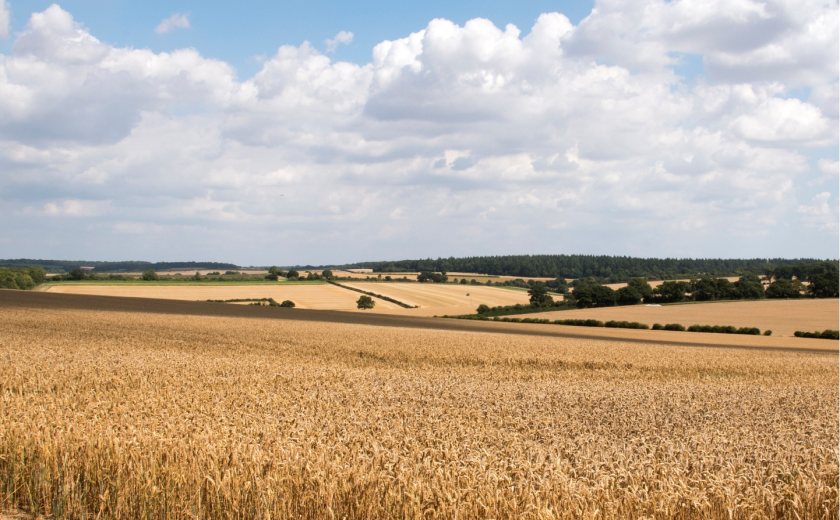
Weetabix has halved the carbon footprint of its wheat in a landmark trial that could revolutionise sustainable cereal production in the UK.
The firm has announced the results of its Lower Carbon Wheat Project, aimed at reducing emissions from wheat production — its largest single ingredient.
The trial demonstrated the potential to reduce greenhouse gas emissions from wheat cultivation by as much as 50%.
Working with its Weetabix Growers’ Group — a collective of over 120 local farmers based within 50 miles of its mills — the company cultivates 75,000 metric tonnes of wheat annually across more than 4 million acres.
Results of the trial were shared at a recent on-farm event attended by 47 growers, held earlier this month at one of the Growers’ Group farms.
The trial involved six farmers, including host farmer Duncan Farrington MBE, who welcomed guests to his farm in Hargrave, Northamptonshire.
Working with advisors from Map of Ag and the European Food and Farming Partnerships, Mr Farrington trialled alternative approaches to reduce the use of synthetic nitrogen — the farm’s largest carbon contributor.
An ambitious target to cut synthetic nitrogen usage by 20% over three years was successfully achieved last year.
This was accomplished through the introduction of cover crops, natural manures and molasses-based biological treatments.
The trial plot now produces enough wheat to supply between 130,000 and 150,000 packets of Weetabix — equivalent to 3.1 to 3.6 million biscuits — with just half the carbon footprint.
Colm O’Dwyer, managing director of Weetabix Food Company, described the project as "a game-changer, not just for Weetabix but for the wider food industry and the future of sustainable agriculture in the UK."
He noted that sustainability is not only ethically important, but also makes business sense. "Doing the right thing isn’t just a ‘nice to have’ – it also makes commercial sense," he said.
"Weetabix Original has outperformed the market in 6 of the last 8 months, and we know that our ‘50 mile radius promise’ is part of the power of the brand for our consumers."
Mr O’Dwyer further stressed that putting farmers at the heart of the project has been crucial to its success.
“Taking a farmer-led approach has been vital to the success of this project, as making sure that the pilot scheme reflects the diversity of farming, soil types and climate conditions amongst growers is essential in order to scale the project and to be economically viable.”
